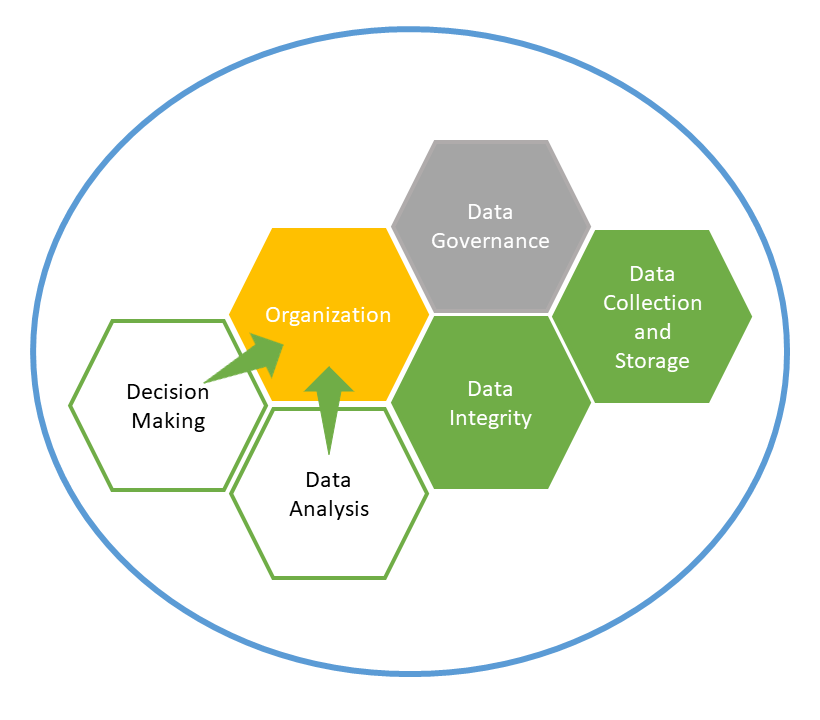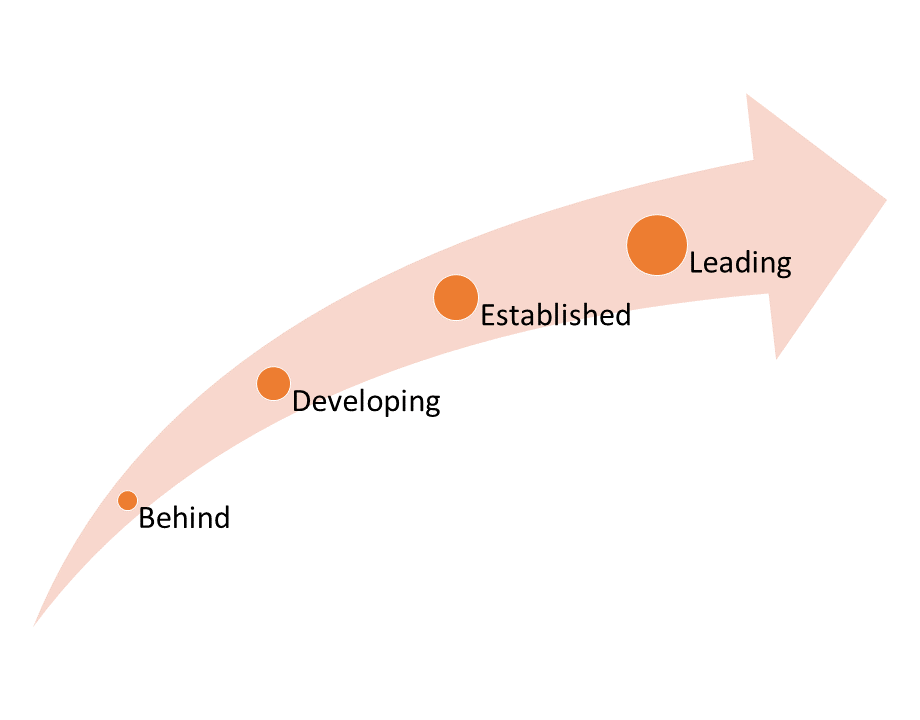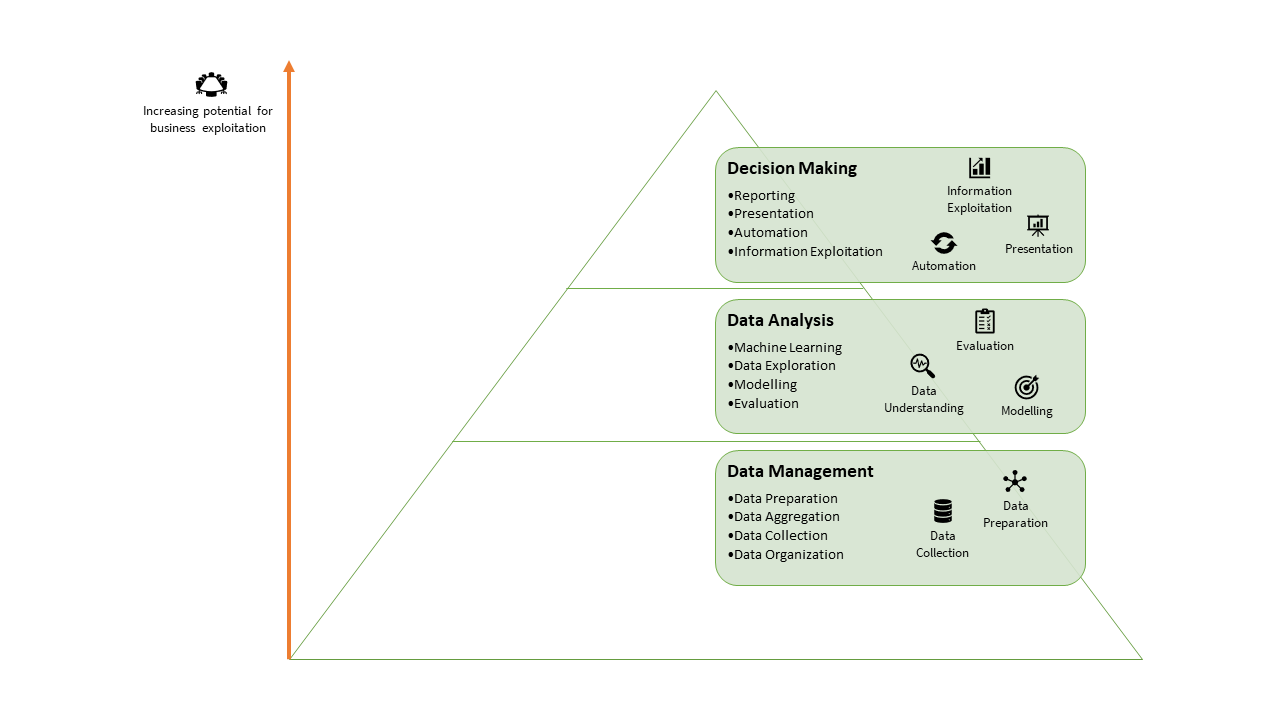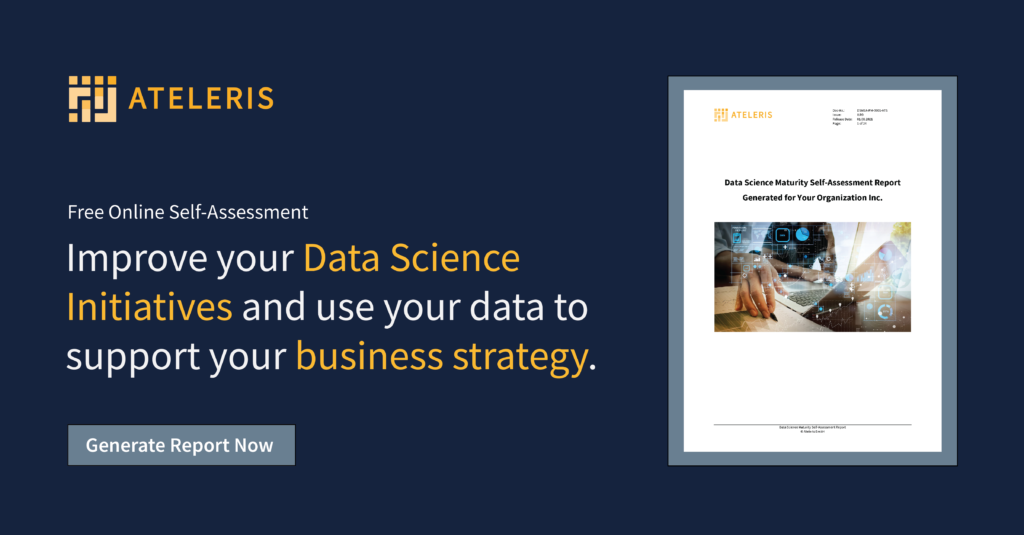Data Science Maturity Self-Assessment Tool
We believe every organization can improve its business value streams by using data and turning them into insights and actionable information. Therefore, we developed a small tool to allow you to self-assess your organization’s or project’s data science maturity and provide some tangible information on potential areas for improvement.
Using the tool is simple: First, you will be asked to evaluate the state and role of data science over the four disciplines of Organization, Data Collection and Storage, Data Integrity, and Data Governance. After that, our system will generate a report and send it to you.
The final report is by no means a complete and exhaustive evaluation. Nevertheless, it serves as an orientation and guideline on your journey to becoming a data-centric and data-driven organization.
Data Science Maturity
Evaluate Your Organization's Readiness
Maturity models are a widely accepted technique to model and assess an organization’s readiness in a specific domain. There are maturity models for software engineering, project management, quality management, and many more.
All maturity models define readiness levels for different disciplines in a chosen domain, ranging from being behind to being advanced or even being ahead in a field. The readiness levels provide a simple, easy-to-understand orientation of an organization’s capabilities, showing potential areas for improvement. Management can then focus on the findings and transform them into a list of actions and campaigns prioritized by business-driven need-risk-gain considerations.
Our Data Science Maturity Model is evaluating the following four disciplines: Organization, Data Collection and Storage, Data Integrity, and Data Governance.
Organization. This discipline evaluates the overall organization’s readiness to embrace and benefit from data-driven solutions. Its primary focus is on processes and strategy.
Data Collection and Storage. This discipline evaluates the organization’s capability for collecting good data in a well-organized and automated fashion.
Data Integrity. This discipline evaluates the organization’s ability to keep data consistent and build and maintain clean data silos over time.
Data Governance. This discipline evaluates the organization’s data governance and standardization competencies, which are highly important for compliance with governmental data regulations.


We use maturity levels ranging from 1 to 4, labeled as Behind, Developing, Established and Leading. Their general interpretation is given below:
Behind. There is room for improvement. Try to get organized and sketch out the low-hanging fruit to start a more structured process.
Developing. There is some experience and awareness in the organization – maybe there is even a first success story. However, there are still generally no transparent processes in place that cross-team or department boundaries.
Established. The organization is aware of the power of data and has experience. Ensure well-defined processes and documentation, general awareness for data, strengthen support from the management, and automation.
Leading. The organization has well-established data-driven processes and understands how to implement data science solutions to benefit from them.
Data Science is for Everyone!
We believe that every organization can benefit from using so-called data-driven solutions. There is no one-size-fits-all approach: The type of solution suitable for a given organization will vary with the organization’s size, purpose, business needs, or maturity level. However, IDC, Gartner, Accenture, and large research companies have shown in their studies that organizations using their data to improve their strategy and business processes are more competitive in the market.
Suppose your organization is only beginning to (or wanting to) use data to make business decisions. In that case, an appropriate first step might be to define business (improvement) goals, to start building an inventory of data, and to launch an initial exploratory data science project to evaluate the business potential. All the while, your organization will become more innovative and data-savvy (what others would call undergoing a digital transformation).
However, a more experienced organization using data science already may have more complex and far-reaching optimization targets to tackle — for example, the need to introduce new or update established processes to deeper embed data-driven solutions into their organization’s DNA.

Where to go from here?
We developed a Data Science Maturity Self-Assessment tool that allows you to evaluate your organization’s or project’s data science readiness by answering a few questions. Using the tool is free of charge. You will need about 15 – 25 minutes to complete the self-assessment, so make sure you have a moment of peace and quiet. After completing the questionnaire, you will be sent a short report that serves as an orientation and guideline to generate some situational awareness.
We can help you get started (or help you improve)
If you are uncertain on where, how, or maybe even why to start, or should you have specific questions or need help with a particular data science objective, then do not hesitate to send us an email or give us a phone call. Minor improvements may already have a tremendous impact, and a quick exchange with us may already help you start the internal discussion and initiate the first steps.
Finally, if you need inspiration on possible data science or analytics projects, then please visit our portfolio page and see for yourself what we have done for other clients.
